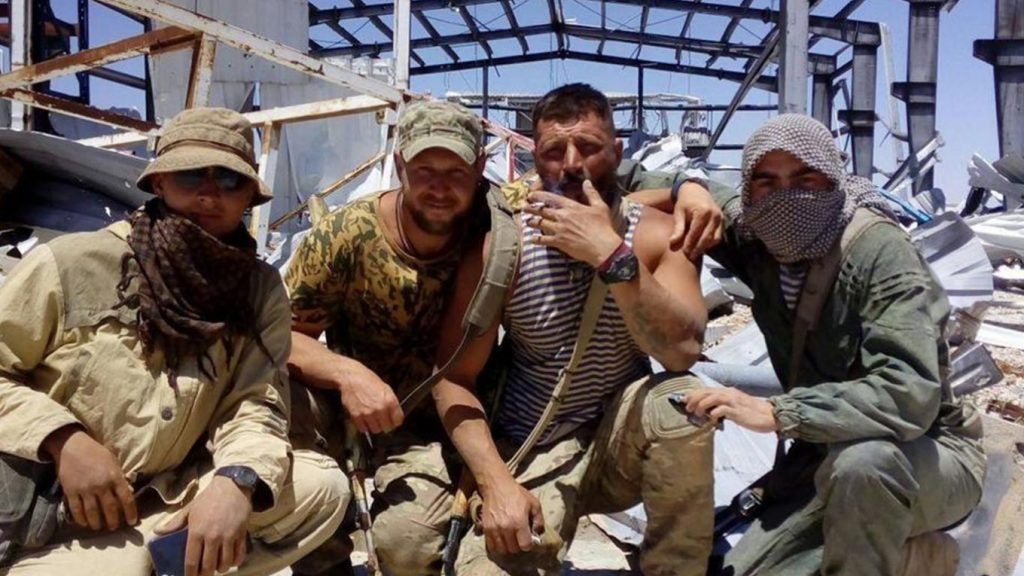Human Rights Groups File Lawsuit Against Wagner PMC Over Torture And Killing Of Syrian Civilian
Three non-government organizations announced yesterday the filing of a lawsuit against the Russian Wagner Group private military company for its contractors’ torture and killing of a Syrian civilian. The Syrian Center for Media and Freedom of Expression (SCM), the International Federation for Human Rights (FIDH), and Memorial Human Rights Center said that they had collaborated to facilitate the lawsuit, which was filed in Moscow by the brother of Muhammad “Hamdi Bouta” Taha al-Abdullah, the murdered civilian.
The lawsuit is the first time family members of Syrian victims have attempted legal action to hold Russian suspects accountable for serious crimes committed in Syria. It seeks the initiation of criminal proceedings on the basis of murder committed with extreme cruelty, and looks to establish the perpetrators’ culpability for the murder and other crimes, including war crimes.
Russian investigative newspaper Novaya Gazeta had reported in 2019 that it had identified one of the men seen in a video of the killing as a Wagner contractor, corroborating its use of facial recognition technology with leaked documents including the contractor’s passport and internal Wagner documents. The newspaper identified him in 2020 as a former policeman named Stanislav Yevgenyevich Dychko, after pleas to Russia’s Investigative Committee to investigate the killing failed to have an effect.
A complaint submitted by Novaya Gazeta one year ago was ignored,” said Alexander Cherkasov, chairman of Memorial Human Rights Center. “This has forced us, human rights defenders, to turn to Russian investigative authorities. Indeed, this is a repeat of what happened 20 years ago, when enforced disappearances, torture and extrajudicial executions committed during the armed conflict in the Northern Caucasus were likewise not investigated. Today, we see another link in this chain of impunity.”
The NGOs say that they have accumulated evidence that establishes the identity of “one of the defendants” and his employment by the Wagner Group, with Clémence Becarte, coordinator of FIDH’s Litigation Action Group, saying:
“Our organisations have worked for months to prepare the case in order to present the Russian judiciary with sufficient evidence that can hold the suspects involved in the crime accountable for their actions. We will also continue to work through all available judicial avenues until justice is achieved.’
Central to the lawsuit are four video clips, the first of which uploaded in 2017 and the remainder in 2019, showing Russian-speaking uniformed fighters beating al-Abdullah with a sledgehammer and dismembering him, before hanging his corpse and setting it alight. al-Jesr Press was first to identify the victim as al-Abdullah, reporting that the bricklayer had allegedly attempted to desert after being forcibly conscripted into the Syrian Arab Army following his return from Lebanon in the spring of 2017. The Paris-based news site also identified the site of the video as the al-Shaer gas plant, a central part of a $22 million joint venture between the Syrian government-operated General Petroleum Corporation and Stroytransgaz, a Russian state-run hydrocarbon engineering company run by oligarch and Putin ally Gennady Timchenko. However, neither Timchenko or alleged Wagner Group owner Yevgeny Prigozhin are parties to the lawsuit.
In comments to The Daily Beast, SCM director-general Mazen Darwish said that Russian authorities have 40 days to respond to the initial filing. Should the action be ignored again, Darwish said that SCM and the other groups would likely file another action at the European Court of Human Rights in Strasbourg, France.
Shortly after the announcement of the lawsuit, Novaya Gazeta’s offices were “attacked”, with an unknown individual spilling a pungent-smelling chemical in front of the office entrances. Editor-in-chief Dmitry Muratov did not explicitly accuse anyone of the spill, which could be smelled from down the street, but acknowledged that the filing of the lawsuit was based on Novaya Gazeta’s articles.
While the facts and jurisdiction of the case make it one to watch, odds of success still seem slim. But with the 10th anniversary of the Syrian Revolution now upon us, a bid for accountability despite the costs and long odds is as timely as ever.

